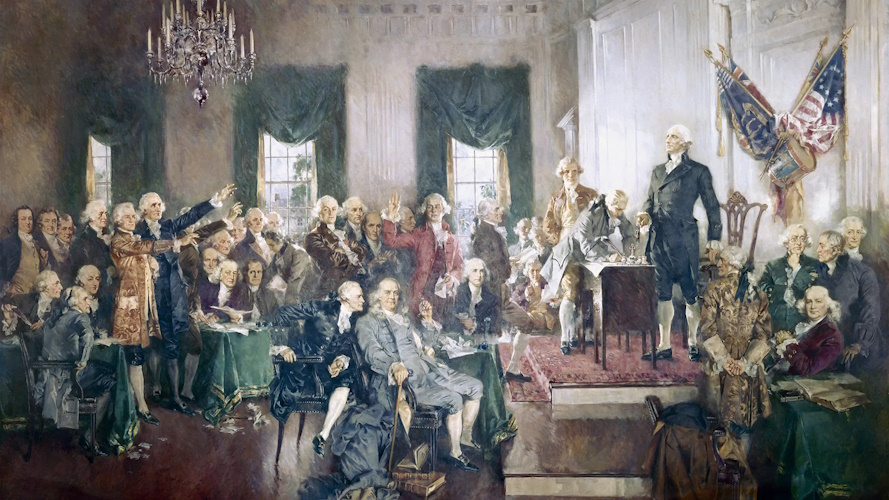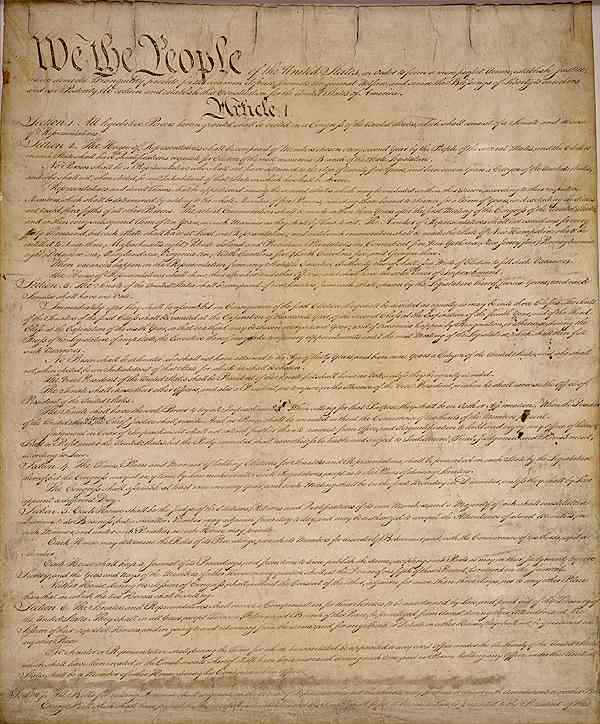
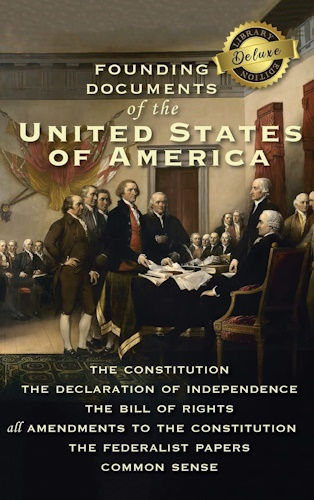
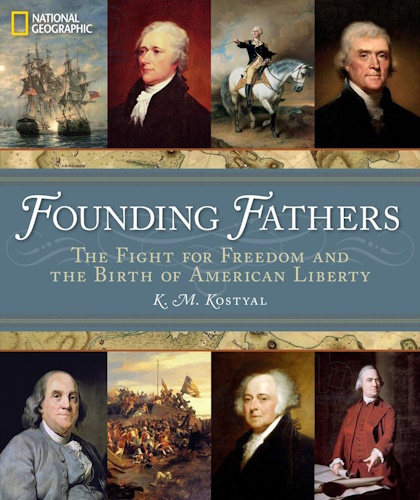
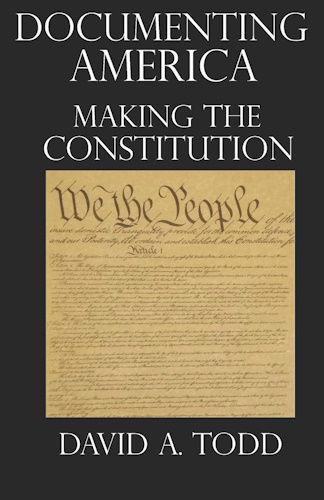


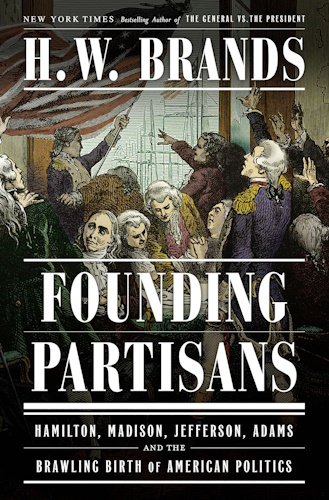
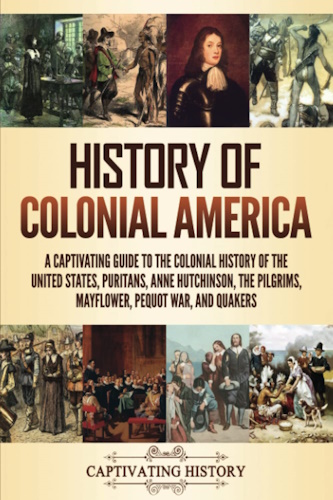
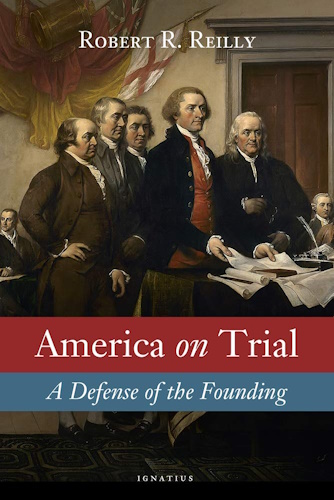
The Constitution For The United States
Its Sources and Its Application
by Thomas James Norton
(Retrieved from archive.org)
The research, work, and dedication
Of
Barefoot Bob Hardison
August 8th, 1933 - January 31st, 2009
![]()
The Constitution For The United States
Its Sources and Its Application
Contents
Preamble
Article 1
Article 2
Article 3
Article 4
Article 5
Article 6
Article 7
Ratification
1st 12 Amendment Proposals
"Bill of Rights" Amend. I - X
Amend. XI -XXVII
Missing Original 13th Amendment
Letter of Transmittl
Landmark Court - Case Index
Constitution History
A Quiz for Loyal Americans
Index
Article VI
All Debts contracted and Engagements entered into, before the Adoption of this Constitution, shall be as valid against the United States under this Constitution as under the Confederation. 132
132 This was "a solemn assurance to public creditors and to the world that the public faith would be inviolably kept by the United States under its changed government."
Hamilton put the debt of the Union at $11,710,378 owing in foreign countries and $42,414,085 of domestic debt. The States themselves owed $25,000,000, making debts in the aggregate of $79,000,000.
The credit of the Colonies had sunk so low during the Revolution that had it not been for bankers in Holland and France the war for freedom must have failed. Thereafter the young States issued so much paper money and passed so many laws making it difficult for creditors to collect debts that it was considered necessary to give assurance to the world that the Nation would pay.
In like manner the Dominion of Canada assumed in its Constitution (1867) responsibility for existing debts.
This Constitution, and the Laws of the United States which shall be made in Pursuance thereof; and all Treaties made, or which shall be made, under the Authority of the United States, shall be the supreme Law of the Land; 133
133 This means that the Constitution itself is a law which it is the duty of the courts (State as well as National) to uphold and enforce as they do all other laws. A law of Congress to be one of the supreme laws must be "made in pursuance thereof" and not in conflict with the Constitution. When not made in pursuance thereof it is of course unconstitutional and of no effect, a nullity, therefore null and void.
"If the State governments had not been restrained from encroaching on the powers vested in the National Government," wrote President Monroe, "the Constitution, like the Confederation, would soon have been set at naught; and it was not within the limit of the human mind to devise any plan for the accomplishment of the object other than by making a National Constitution which should be to the extent of its powers the supreme law of the land."
"Legislators have their authority measured by the Constitution," says Cooley; "they are chosen to do what it permits, and NOTHING MORE, and they take solemn oath to obey and support it.... To pass an act when they are in doubt whether it does or does not violate the Constitution is to treat as of no force the most imperative obligations any person can assume."
Before this supreme law the acts of Congress, the acts of State legislatures, and the constitutions of States, when conflicting with it, go down. When the people express their will in the National Constitution all conflicting expressions of will of an inferior sort go for nothing. An excellent illustration of the absolute supremacy of the Constitution was presented in the Eighteenth Amendment, prohibiting the manufacture and sale of intoxicating liquors, because at the time of its adoption there were not only many States with laws permitting the manufacture and sale of liquors, but there were also acts of Congress, and, moreover, the National treasury derived large revenue from licenses and taxes respecting liquors. But all those fell and were nothing the instant that the Eighteenth Amendment, the supreme law, took effect. "The first section of the Amendment," said the Supreme Court of the United States, disposing (June 7, 1920) in one decision of cases which arose in New Jersey; Rhode Island, Massachusetts, Kentucky, Wisconsin, and Missouri, "the one embodying the prohibition, is operative throughout the entire territorial limits of the United States, binds all legislative bodies, courts, public officers, and individuals within those limits, and of its own force invalidates every legislative act -- whether by Congress, by a State legislature, or by a Territorial assembly -- which authorizes or sanctions what the section prohibits." c106
A good illustration of the statement in the Constitution that a treaty (along with the Constitution itself, and the acts of Congress made in the pursuance of it) is the supreme law of the land, before which National laws, State laws, and judicial decisions must fall, is found in the Migratory Bird Case, in which the Supreme Court held (1920) that, upon our making a treaty in 1916 with Great Britain for the protection of birds passing between the United States and Canada, the States ceased to have regulatory power. When the supervisory power was given to Congress by a treaty, the treaty and the act to carry it out became the supreme law of the land. Of the three elements entering into what the Constitution declares to be the "supreme law of the land," namely, "this Constitution, and the laws of the United States which shall be made in pursuance thereof, and all treaties made or which shall be made under the authority of the United States," the treaty is second to no other. The laws of Congress are not the supreme law of the land unless they "shall be made in pursuance thereof" -- of the Constitution. But the treaty is the supreme law of the land when made "under the authority of the United States" -- that is, when negotiated by the President and approved by the Senate. The people having expressed their National will in a treaty, the will of a State respecting the subject must conform to the superior will.c66, c106
Of the cooperation which should prevail between the State and the Nation and of the proper relation of the two governments to each other the Supreme Court said (1858):
"Nor is there anything in this supremacy of the general government, or the jurisdiction of its judicial tribunals, to awaken the jealousy or offend the natural and just pride of State sovereignty. Neither this government, nor the powers of which we are speaking, were forced upon the States. The Constitution of the United States, with all the powers conferred by it on the general government, and surrendered by the States, was the voluntary act of the people of the several States, deliberately done, for their own protection and safety against injustice from one another." c103
and the Judges in every State shall be bound thereby, any Thing in the Constitution or Laws of any State to the Contrary notwithstanding. 134
134 Every judge in every court of the States is under oath or affirmation to support the Constitution of the United States. When any litigation arises out of the constitution of his State or out of any of its laws it is by this clause made his duty to "be bound" by the National Constitution and laws and in a proper case to hold the State constitution or law to be void for conflict with "the supreme law of the land." This the courts of the States have done from the beginning down in almost countless cases, as where a State constitution or law has interfered with or assumed to control interstate commerce, or to deal discriminatively with the citizens of other States or of the United States, or to emit bills of credit or paper money, or to prescribe ex post facto punishment, or to impair the obligations of contracts, and so on. But when a State court fails in this aspect its action is reviewable and reversible by the Supreme Court of the United States.
Discussing this clause, Dicey, the distinguished English legist, mentions that while French constitutionalists endeavored by many and strict provisions to "confine the power of the legislature," they failed to recognize and provide for "the fact that enactments of the legislature might, without being in so many words opposed to the Constitution, yet be of dubious constitutionality, and that some means would be needed for determining whether a given law was or was not in opposition to the principles of the Constitution." He states that "a constitution may be undermined by the passing of laws which, without nominally changing its provisions, violate its principles." George Washington adverted to this in his Farewell Address and said that "one method of assault may be to effect in the form of the Constitution alterations which will impair the energy of the system and thus to undermine what cannot be directly overthrown."
Dicey declares that the Americans solved the problem. They "directed their attention, not so much to preventing Congress and other legislatures from making laws in excess of their powers, as to the invention of means by which the effect of unconstitutional laws may be nullifed; and this result they have achieved by making it the duty of every judge throughout the Union to treat as void any enactment which violates the Constitution, and thus have given to the restrictions contained in the Constitution on the legislative authority either of Congress or the State legislature the character of real laws, that is, of rules enforced by the courts. This system, which makes the judges the guardians of the Constitution, provides the only adequate safeguard which has hitherto been invented against unconstitutional legislation."
In another chapter Dicey returns to the subject and points out that "in no country has greater skill been expended" in the construction of a judicial system, and he mentions again that "the guardianship of the Constitution is in America confided not only to the Supreme Court, but to every judge throughout the land."
"The power, moreover, of the courts which maintains the articles of the Constitution as the law of the land," quoting Dicey further, "and thereby keeps each authority within its proper sphere, is exerted with an ease and regularity which has astounded and perplexed Continental critics. The explanation is that while the judges of the United States control the action of the Constitution they nevertheless perform purely judicial functions, since they never decide anything but the cases before them."
That is, they do not have the initiative to interfere. A "case" must be brought before they can act. All the decisions of the courts have disposed, not of theoretic or academic questions, but of actual and weighty controversies between men with respect to life, liberty, or property. One party has claimed a right under the Constitution, or under an act of Congress, or under a treaty. The other party has contested the claim. The court has decided the contention. Except where a case is thus brought for judgment before a court by contesting parties, the judiciary has no power to render any decision or to make any pronouncement whatsoever. Both the Legislative Department and the Executive Department have vast initiative -- the Judicial Department has none at all.
The Constitution of Australia is declared, like ours, to be the supreme law of the land, and that "it shall be binding on the courts, judges, and the peoples of every State and of every part of the Commonwealth, notwithstanding anything in the law of any State." The High Court of Australia, like our Supreme Court, and like the Supreme Court of Canada, declares invalid a legislative act in conflict with the Constitution.
The Senators and Representatives before mentioned, and the Members of the several State Legislatures, and all executive and judicial Officers, both of the United States and of the several States, shall be bound by Oath or Affirmation, to support this Constitution; 135
135 In the oath taken by a State officer he first swears to uphold and defend the Constitution and the laws of the United States, and next he swears to support those of his State.
The first oath prescribed by Congress (June 1, 1789) was simply to support the Constitution, and it contained no invocation to God. During the Civil War (July 2, 1862) the oath was changed by Congress to what was called the "iron-clad oath," and the affiant was required to say that he had not borne arms against the United States or given aid or encouragement to hostile forces, or held office under hostile authority; and he was made to declare that he would support and defend the Constitution against all enemies, that he took the oath without mental reservation or evasion, and that he would faithfully discharge the duties of the office, "so help me God." So far as this Act prevented a man from resuming his practice as an attorney before the Supreme Court after he had been pardoned by the President for holding office under the Confederate States it was held to be unconstitutional because ex post facto, imposing a punishment which was not prescribed at the time of the misconduct, It operated as a bill of attainder because a person was, without trial, adjudged guilty of a crime and sentenced to exclusion from civil rights. In 1868 Congress made a modification of the foregoing oath for those who had "participated in the late rebellion and from whom all legal disabilities" had been "removed by Act of Congress."
"This is the last and closing clause of the Constitution," said the Supreme Court (1858) in the opinion by Chief Justice Roger B. Taney, disposing of a case in which the Supreme Court of a State had undertaken to release a man in the custody of a United States marshal who was holding him under a warrant issued by a United States District Court in pursuance of an act of Congress, "and inserted when the whole frame of government, with the powers hereinbefore specified, had been adopted by the Convention; and it was in that form, and with these powers, that the Constitution was submitted to the people of the several States, for their consideration and decision.... In the emphatic language of the pledge required, It is to support this Constitution . And no power is more clearly conferred by the Constitution and laws of the United States than the power of this court to decide, ultimately and finally, all cases arising under such Constitution and laws." c103
Writing of the approaching civil war between Charles I and Parliament, in which the House of Lords would probably favor the King, the historian Green ("English People," Sec. 1036) portrayed in a sentence the dire consequences of a lack of clearly defined powers of government and of the binding of all officers of government to follow absolutely the written charter:
"The legal antiquarians of the older constitutional school stood helpless before such a conflict of coordinate powers, a conflict for which no provision had been made by the law, and on which precedents threw only a doubtful and conflicting light."
but no religious Test shall ever be required as a Qualification to any Office or public Trust under the United States. 136
136 By the oaths prescribed by some of the States the person entering office was required to express belief in "one God, the creator of the universe, the rewarder of the good and the punisher of the wicked"; or to declare belief in the "divine inspiration" of the Scriptures, or "faith in God the Father and in Jesus Christ, His only Son," and so on. Such oaths excluded from office those whose belief prevented them from so swearing, and they were consequently the "religious test" forbidden by this clause of the Constitution. This clause was added by motion in the Constitutional Convention to the language requiring an oath by all officials, both National and State, and its adoption was unanimous. The clause, however, is not a prohibition upon the States. But most if not all of the constitutions of the States have a like provision.
This subject comes up again in another form in the First Amendment, which forbids 141 Congress (not the States) to make any "law respecting an establishment of religion or prohibiting the free exercise thereof." The First Amendment also, or the substance of it, is in the constitutions of the States, though some were slow in adopting it.
![]()
![]()
![]()
Disclaimer:
Some material presented will contain links, quotes, ideologies, etc., the contents of which should be understood to first, in their whole, reflect the views or opinions of their editors, and second, are used in my personal research as "fair use" sources only, and not espousement one way or the other. Researching for 'truth' leads one all over the place...a piece here, a piece there. As a researcher, I hunt, gather and disassemble resources, trying to put all the pieces into a coherent and logical whole. I encourage you to do the same. And please remember, these pages are only my effort to collect all the pieces I can find and see if they properly fit into the 'reality aggregate'.
Personal Position:
I've come to realize that 'truth' boils down to what we 'believe' the facts we've gathered point to. We only 'know' what we've 'experienced' firsthand. Everything else - what we read, what we watch, what we hear - is what someone else's gathered facts point to and 'they' 'believe' is 'truth', so that 'truth' seems to change in direct proportion to newly gathered facts divided by applied plausibility. Though I believe there is 'truth', until someone representing the celestial realm visibly appears and presents the heavenly records of Facts And Lies In The Order They Happened, I can't know for sure exactly what "the whole truth' on any given subject is, and what applies to me applies to everyone. Until then I'll continue to ask, "what does The Urantia Book say on the subject?"
~Gail Bird Allen
![]()
![]()








-
Urantia Book, 44:0.11 - The Celestial Artisans
Never in your long ascendancy will you lose the power to recognize your associates of former existences. Always, as you ascend inward in the scale of life, will you retain the ability to recognize and fraternize with the fellow beings of your previous and lower levels of experience. Each new translation or resurrection will add one more group of spirit beings to your vision range without in the least depriving you of the ability to recognize your friends and fellows of former estates.
-
Princess Bride 1987 Wallace Shawn (Vizzini) and Mandy Patinkin (Inigo Montoya)
Vizzini: HE DIDN'T FALL? INCONCEIVABLE.
Inigo Montoya: You keep using that word. I do not think it means what you think it means. -
Urantia Book, 117:4.14 - The Finite God
And here is mystery: The more closely man approaches God through love, the greater the reality -- actuality -- of that man. The more man withdraws from God, the more nearly he approaches nonreality -- cessation of existence. When man consecrates his will to the doing of the Father's will, when man gives God all that he has, then does God make that man more than he is.
-
Urantia Book, 167:7.4 - The Talk About Angels
"And do you not remember that I said to you once before that, if you had your spiritual eyes anointed, you would then see the heavens opened and behold the angels of God ascending and descending? It is by the ministry of the angels that one world may be kept in touch with other worlds, for have I not repeatedly told you that I have other sheep not of this fold?"
-
Urantia Book, Foreword - 0:12.12 - The Trinities
But we know that there dwells within the human mind a fragment of God, and that there sojourns with the human soul the Spirit of Truth; and we further know that these spirit forces conspire to enable material man to grasp the reality of spiritual values and to comprehend the philosophy of universe meanings. But even more certainly we know that these spirits of the Divine Presence are able to assist man in the spiritual appropriation of all truth contributory to the enhancement of the ever-progressing reality of personal religious experience—God-consciousness.
-
Urantia Book, 1:4.3 - The Mystery Of God
When you are through down here, when your course has been run in temporary form on earth, when your trial trip in the flesh is finished, when the dust that composes the mortal tabernacle "returns to the earth whence it came"; then, it is revealed, the indwelling "Spirit shall return to God who gave it." There sojourns within each moral being of this planet a fragment of God, a part and parcel of divinity. It is not yet yours by right of possession, but it is designedly intended to be one with you if you survive the mortal existence.
-
Urantia Book, 1:4.1 - The Mystery Of God
And the greatest of all the unfathomable mysteries of God is the phenomenon of the divine indwelling of mortal minds. The manner in which the Universal Father sojourns with the creatures of time is the most profound of all universe mysteries; the divine presence in the mind of man is the mystery of mysteries.
-
Urantia Book, 1:4.6 - The Mystery Of God
To every spirit being and to every mortal creature in every sphere and on every world of the universe of universes, the Universal Father reveals all of his gracious and divine self that can be discerned or comprehended by such spirit beings and by such mortal creatures. God is no respecter of persons, either spiritual or material. The divine presence which any child of the universe enjoys at any given moment is limited only by the capacity of such a creature to receive and to discern the spirit actualities of the supermaterial world.
-
Urantia Book, 11:0.1 - The Eternal Isle Of Paradise
Paradise is the eternal center of the universe of universes and the abiding place of the Universal Father, the Eternal Son, the Infinite Spirit, and their divine co-ordinates and associates. This central Isle is the most gigantic organized body of cosmic reality in all the master universe. Paradise is a material sphere as well as a spiritual abode. All of the intelligent creation of the Universal Father is domiciled on material abodes; hence must the absolute controlling center also be material, literal. And again it should be reiterated that spirit things and spiritual beings are real.
-
Urantia Book, 50:6.4 - Planetary Culture
Culture presupposes quality of mind; culture cannot be enhanced unless mind is elevated. Superior intellect will seek a noble culture and find some way to attain such a goal. Inferior minds will spurn the highest culture even when presented to them ready-made.
-
Urantia Book, 54:1.6 - True And False Liberty
True liberty is the associate of genuine self-respect; false liberty is the consort of self-admiration. True liberty is the fruit of self-control; false liberty, the assumption of self-assertion. Self-control leads to altruistic service; self-admiration tends towards the exploitation of others for the selfish aggrandizement of such a mistaken individual as is willing to sacrifice righteous attainment for the sake of possessing unjust power over his fellow beings.
-
Urantia Book, 54:1.9 - True And False Liberty
How dare the self-willed creature encroach upon the rights of his fellows in the name of personal liberty when the Supreme Rulers of the universe stand back in merciful respect for these prerogatives of will and potentials of personality! No being, in the exercise of his supposed personal liberty, has a right to deprive any other being of those privileges of existence conferred by the Creators and duly respected by all their loyal associates, subordinates, and subjects.
-
Urantia Book, 54:1.8 - True And False Liberty
There is no error greater than that species of self-deception which leads intelligent beings to crave the exercise of power over other beings for the purpose of depriving these persons of their natural liberties. The golden rule of human fairness cries out against all such fraud, unfairness, selfishness, and unrighteousness.

